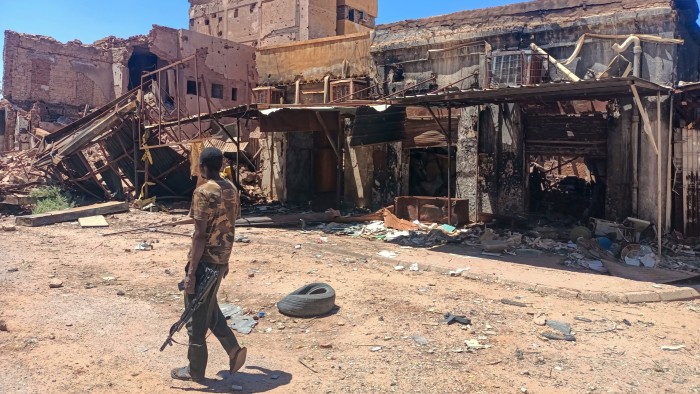Unlock the Editor’s Digest for free
The writer is the former prime minister of Sudan
Sudan is currently facing a critical juncture in its history. The ongoing war has ravaged the nation, displacing millions of people and causing immense suffering. This crisis is not a new phenomenon, but rather a result of years of exclusion, economic disparity, and institutional decay. It is clear that a military solution to Sudan’s war is not viable. The recent capture of the presidential palace in Khartoum by the army may have shifted the tactical landscape, but it does not change the fundamental reality that continued conflict will only lead to further suffering for the civilian population.
It is evident that Sudan requires a democratic, civilian-led government that represents all its people in order to preserve its unity and prevent further disintegration. Military takeovers and authoritarian rule have proven to be ineffective in achieving lasting peace and stability. The only way to achieve true peace is through a negotiated political settlement that addresses the root causes of the conflict.
The repercussions of Sudan’s war are not limited to its borders; they are being felt regionally as well. The conflict has exacerbated instability in neighboring countries, leading to arms proliferation, cross-border displacement, and economic turmoil. The upcoming foreign ministers’ gathering in London to discuss Sudan presents a crucial opportunity for the international community to take action. It is imperative that concrete steps are taken to address the crisis in Sudan and prevent it from escalating further.
I urge the ministerial meeting to adopt the London Action Plan for Sudan, which includes endorsing civilian leadership as the foundation for any peace process in Sudan and establishing a high-level contact group to support international efforts for peace. It is essential that all parties in the conflict commit to an immediate humanitarian ceasefire and ensure the protection of civilians.
Furthermore, an international pledging conference should be held to address the humanitarian funding gap and create a framework for Sudan’s reconstruction. The African Union Peace and Security Council and the UN Security Council should collaborate on concrete measures to protect civilians in line with humanitarian law. Additionally, the AU and the Intergovernmental Authority for Development should facilitate a Sudanese-led civilian preparatory meeting to define the structure of a comprehensive peace process.
It is crucial for the international community to show unwavering support for Sudan during this critical moment. Bold efforts are needed to empower Sudanese civilians and help them reclaim their country. Sudan’s war is not just a domestic crisis; it is a test of the world’s commitment to peace, democracy, and the protection of human life. It is time for the global community to act decisively and work towards a peaceful resolution in Sudan.








